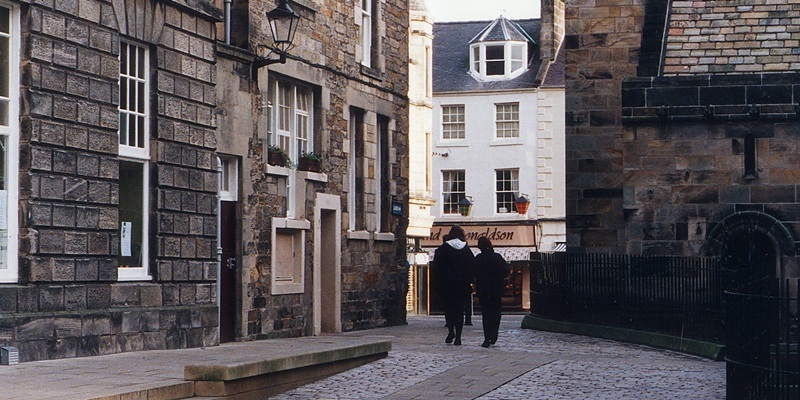Student leaders in St Andrews have struck out at new housing legislation they claim will make it even harder for students to find suitable and affordable accommodation in the town.
The Scottish Parliament has handed power to local authorities to refuse licences for houses in multiple occupation (HMOs) if they feel there are too many in a particular area.
Behind the move is former MSP Ted Brocklebank, who is based in St Andrews.
The town has a particularly high concentration of HMOs rented by its large student population and in parts there are far more student flats than other types of housing.
The proliferation has led to contention in the community, with complaints from permanent residents about anti-social behaviour and poorly maintained properties.
The University of St Andrews Students’ Association fears its students, who already face one of the highest average rents in the country, will struggle even more as a result of the law.
Accusing Mr Brocklebank of naivity and narrow thinking, director of representation Siena Parker said, “There is high demand for HMO properties and limited supply.
“Local authorities citing this legislation will merely restrict the supply further, meaning that students will face even tougher choices and even more exploitative rents.
“The use of this law to put an artificial cap on HMOs could potentially spread the student population thin and wide, pushing rental demand into the peripheries of the town, thereby driving up prices in the only areas in St Andrews that remain relatively affordable.”
Association president Owen Wilton also criticised Mr Brocklebank’s reasoning for promoting his amendment to the Private Rented Housing Bill.
He said, “The rather paternalistic and condescending bottom line of Mr Brocklebank’s argument seems to be that there are some properties that should just not have students living in them. That is unacceptable.
“Our basic right to rent and to access the property market like every other citizen cannot be infringed merely because a rather voluble minority of activists has persuaded one parliamentarian that our presence is an inconvenience to the town.
“No politician would dare target any other social grouping in this way.
“The reality is that the students and staff of the university are now the economic drivers of St Andrews.
“By describing the ‘indigenous population’ as ‘blighted’ by HMOs, Mr Brocklebank ignores our considerable contribution to the royal burgh and thousands of hours of work by student volunteers to foster warmer town-gown relations.”
Mr Brocklebank, who is not fighting for re-election, claimed the association had misunderstood the aim of the law, which he said was not intended to be anti-student.
He said, “It is to give councils confidence that where they decide there is an over-provision of HMOs the legislation is there to back them up.
“Where it is clear the lifestyles of 85% of residents are impinging on those of the other 15%, they have the clear power to refuse further HMOs.”
The association also accused a Fife councillor of being hot-headed and misleading after he claimed St Andrews properties were being taken over students.
As reported by The Courier on Wednesday, Councillor Gerry McMullan, chairman of Fife Council’s regulations and licensing committee, said the new power given by the Scottish Government was long overdue and that St Andrews had suffered decades of social issues due to anti-social behaviour from a minority of students.
Mr Wilton said, “It is frankly exasperating to hear this kind of hot-headed and misleading rhetoric at a time when we need to be having a sober and rational debate about HMO policy in St Andrews.
“Crime rates in St Andrews are incredibly low, and whilst there are isolated instances of unneighbourly conduct, there simply is not a systematic social problem in St Andrews.
“Those who pretend otherwise are frankly out of touch, and don’t know the meaning of antisocial behaviour.”Fife Council is also proposing planning policy to effectively ban new HMOs in St Andrews town centre by denying planning permission.
